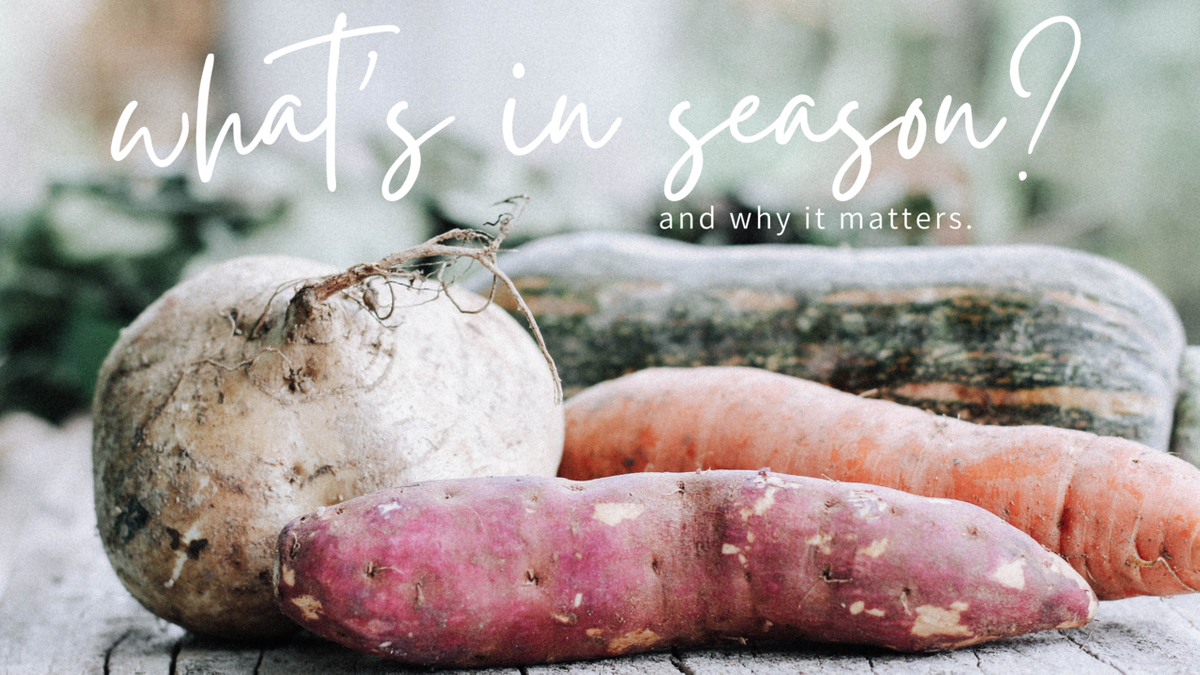We see bloggers and chefs often talking about what’s in season and we see our favorite high end restaurants changing their menus seasonally… but does seasonal produce really matter?
It turns out that the answer is yes! Let us tell you why.
It’s cheaper!
When fruits and vegetables are in season, there is more supply available, resulting in lower prices. Conversely, when food is out of season it must be imported from other areas of the world. The further that food travels, the more expensive it becomes for you. It’s estimated that around one-third of the vegetables and more than half of the fruit purchased in the United States are imported from other countries. The further that food travels, the more expensive it becomes for you.
Even if it’s not being transported across the continent, out-of-season foods grown more locally in greenhouses require greater energy consumption and thus, increased costs for the grower which are inevitably passed on to you. Buying seasonal produce locally from a farmers’ market or through a community-supported agriculture (CSA) program can help our carbon footprint and the dent in our wallets!
It’s more nutritious!
It turns out that the season produce is grown in can also contribute to its nutrient composition. A study conducted by the National Institute of Health found that broccoli grown in-season during the fall had twice as much vitamin C as broccoli that was grown out of season in the spring. Further, fruits and vegetables that are stored for long periods of time due to transportation have a reduction in phyto-nutrient content. Large grocers may buy out-of-season produce that has been gassed, irradiated (a burst of radiation to kill germs) and preserved in wax in order to extend shelf life.
It just tastes better!
If you want incredibly flavorful food, you should start with produce that’s in season and not kept frozen as it travels across continents or hemispheres. Produce that will be transported must be harvested early and refrigerated so that it won’t spoil during transportation. When produce is harvested early it does not reach it’d full flavor potential. Further, the chilling of produce in refrigerator cars during transportation can also reduce the flavor. Finally, when the produce finally gets to its destination it then may need to be heated in a hot house to artificially complete the ripening process. This artificial ripening can greatly reduce the flavor, change the texture and the taste.
So what’s in season now? Check (and print) out this handy wheel from our friends at Reader’s Digest and try building next week’s meal plan around only seasonal produce!


